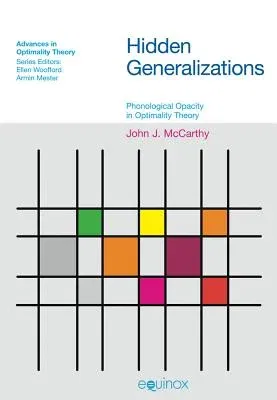John J McCarthy
(Author)Hidden GeneralizationsPaperback, 1 June 2007

Qty
1
Turbo
Ships in 2 - 3 days
In Stock
Free Delivery
Cash on Delivery
15 Days
Free Returns
Secure Checkout

Part of Series
Advances in Optimality Theory
Print Length
254 pages
Language
English
Publisher
Equinox Publishing (UK)
Date Published
1 Jun 2007
ISBN-10
1845530527
ISBN-13
9781845530525
Description
Product Details
Author:
Book Format:
Paperback
Country of Origin:
GB
Date Published:
1 June 2007
Dimensions:
22.1 x
15.72 x
1.37 cm
ISBN-10:
1845530527
ISBN-13:
9781845530525
Language:
English
Location:
Sheffield
Pages:
254
Publisher:
Weight:
399.16 gm